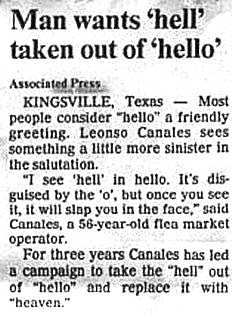When it comes to naming products, subjectivity comes up an awful lot. It is easy enough to rule out the name of your new international sofa range if it means ‘yoghurt’ in Italian and even easier if it happens to be a word used as an insult or sexual term in certain countries or cultures. What makes it a more difficult decision is when you are faced with someone telling you that they see certain words in your names that others do not. Someone saying that your new name ‘sounds a bit like’ a term for genitalia or has the first few letters of a word used for telling people to ‘go away’ can make the decision makers behind important brands very nervous. The question is though, where do you draw the line?
I imagine almost everyone in branding has at least one story of losing a favourite idea to what they perceived as crazy comments from a testing group. If one person in a group of a hundred says your name evokes sheep mutilation, should we ignore them or do we have to accept that others might think it and ditch the name?
There are obviously degrees to this. Take the word Juzu as an example and assume we want to use it for a product in the
This illustrates that sometimes the negative is so strong that, even though it will only be noticed by a small minority, we should nevertheless reject the name on that basis. However, we probably need to accept that no idea can truly be considered bullet proof and people will always find something negative to say if they look hard enough or think about it for long enough. Take the example of the Texan man who made headlines in 1997 for wanting to change the greeting ‘hello’ as it contained the word ‘hell’. I don’t want to upset anyone but I’d hope we can all agree that maybe that is taking it a bit too far!
Both hell and
Ultimately, the decision on whether to kill a name or save it is also a subjective one, but hopefully a degree of dispassionate common sense can be involved. So sadly I can’t give you a fool-proof rule to follow but would advise that if you hear someone’s problem with your name and recoil in horror you should probably scrap it but if you start laughing and questioning their sanity then it’s probably OK.
